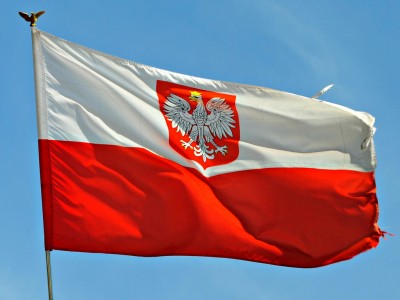Poland’s Purchase of U.S. Nuclear Power Reactors “Is About Military Ties, Not Climate Change”

Poland became a NATO member in the first controversial eastward expansion of NATO following the collapse of the Soviet Union. In the subsequent controversy over attempts to make Ukraine a NATO member, Poland has been an even more vociferous supporter of the USA than the traditional strong allies of the USA from Western Europe. It can be argued that in the recent Ukraine-Russia conflict, among all leading European countries Poland has taken the most hawkish stand against Russia.
A recent published paper in the Bulletin of Atomic Scientists (8.8.2024) has raised concerns regarding the closer cooperation of Poland and the USA relating to nuclear power which can have military implications.
This paper titled ‘Eastern Europe’s Purchase of US Nuclear Reactors is Primarily About Military Ties, not Climate Change’ has been written by Maha Siddiqui and M.V.Ramana’ and was first published on August 2, 2024. Although this paper briefly mentions Romania, mostly it concerns Poland.
Screenshot from the Bulletin of the Atomic Scienstists
This paper argues that while outwardly promoting nuclear power as a way to meet climate goals,
“Poland and other countries in Eastern Europe seem to be using nuclear purchases for geopolitical leverage with the United States. That desire is evident in their parallel actions in the military front. Given the ongoing war in Ukraine and tensions in multiple parts of the world, the combination of geopolitics and nuclear technology may prove dangerous, even as it is ineffective at mitigating climate change.”
This important paper informs us that in recent years, Poland has entered into a number of agreements to build nuclear reactors, including the in-vogue small modular reactors (SMRs) from the United States and large reactors from South Korea. In April, Poland President Andrzej Duda publicly expressed a readiness to host NATO nuclear weapons. In an interview published in a Polish news outlet, he revealed that nuclear sharing had been discussed with the United States “for some time.” The previous Prime Minister Mateusz Morawiecki had also indicated an “interest in hosting nuclear weapons under NATO’s nuclear-sharing policy.”
This paper adds that Poland also tied itself militarily to the United States by becoming part of US missile defence infrastructure. The process started during the George W. Bush administration and continued through the successive US presidencies. Most recently, as part of the Biden administration’s 2024 budget for defence, the Missile Defence Agency requested funding to complete construction of a site in Poland to deploy the Aegis Ashore missile defence system and purchase missiles for this site.
Further the authors tell us that Poland has emerged as one of Europe’s largest importers of military equipment, second only to Ukraine, buying military equipment worth billions of dollars from the United States. In the 2023 fiscal year alone, Poland purchased Apache Helicopters ($12 billion), High Mobility Artillery Rocket System ($10 billion), Integrated Air and Missile Defence Battle Command System ($4 billion), and M1A1 Abrams Main Battle Tanks ($3.75 billion).
Poland’s military spending in 2023 was 75 percent higher than in 2022 and 181 percent higher than in 2014. Poland was also among the world’s 20 largest importers of weapons in the 2019-2023 period, with its share of imports jumping four-fold compared to the previous 2014-2018 period. Of these imports, nearly half came from the United States.
In the “Integrated Country Strategy” for Poland from June 2022, the US State Department’s top two mission goals were stated to involve military engagement and adoption of new energy technology, including nuclear power. This paper argues that “by all evidence, the focus on nuclear energy in Eastern Europe appears not to be driven mainly by climate change but by old-fashioned geopolitics in significant proportion.”
The authors issue a timely warning,
“Building up military forces using US technology and expanding US military presence in the region, even possibly basing nuclear weapons in Poland, may increase the likelihood of a catastrophic war between Russia and NATO. Such a war would be compounded by the potential for radioactive contamination from deliberate or inadvertent attacks on nuclear reactors, as illustrated by the Zaporizhzhia nuclear plant in Ukraine, which Russia has occupied since March 2022 and used as a source of leverage.”
The authors conclude,
“Investments in nuclear power in Eastern Europe hide geopolitical and military motivations behind a smoke screen of fighting climate change. When these motivations result in the massive acquisition of military equipment, manufacturing and operating them will increase carbon dioxide emissions. Worse, military build-ups will also increase the risk of conflict, potentially leading to a catastrophic war that could involve nuclear weapons.”
This important paper should be seen as a very timely call, a very important call to avoid creating new risks, very high risks in a geo-politically very sensitive part of the world. In particular this paper deserves serious attention in Europe. Clearly an already deeply troubled world should endeavour actively to avoid creating any more serious risks in sensitive areas. There is need for much higher commitment to peace and it needs to be better recognized more widely that avoiding conflicts and relentless arms race, while being most essential for their own sake, can also contribute greatly to reducing climate change.
*
Click the share button below to email/forward this article to your friends and colleagues. Follow us on Instagram and Twitter and subscribe to our Telegram Channel. Feel free to repost and share widely Global Research articles.
One Month Before Global Research’s Anniversary
Bharat Dogra is Honorary Convener, Campaign to Save Earth Now. His recent books include Planet in Peril, Protecting Earth for Children, Earth without Borders and A Day in 2071. He is a regular contributor to Global Research.


